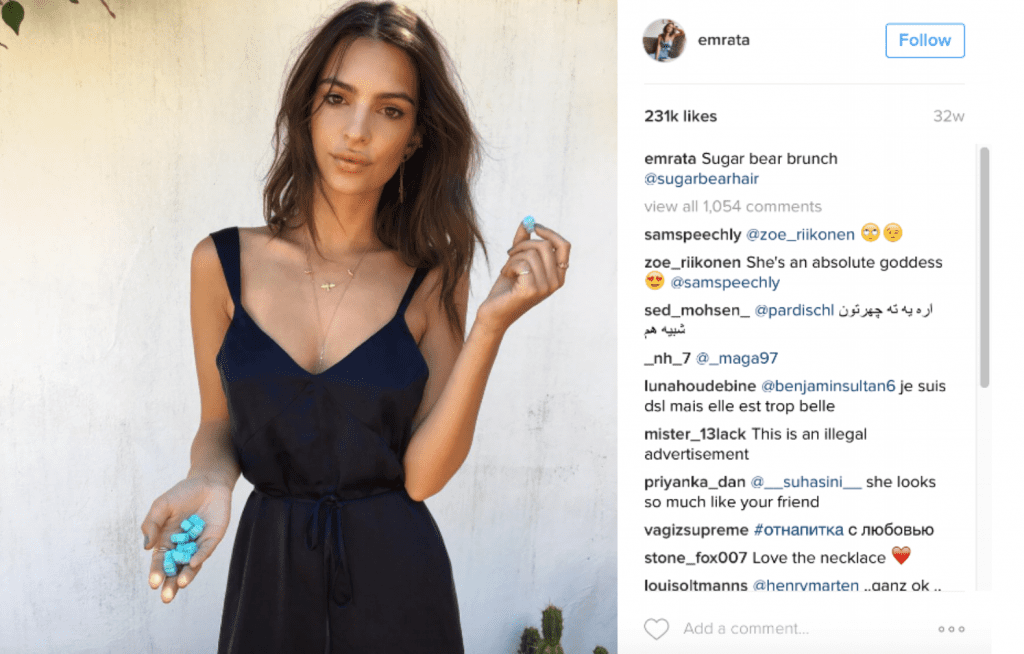While the Federal Trade Commission (“FTC”) did not necessarily appear to be doing too much by way of tangible action to follow up on the 90 letters it sent out this spring to remind celebrities, influencers and brands that they must clearly and conspicuously disclose their relationships when promoting or endorsing products through social media (and not by way of a hashtag that reads, “Partner” or “Spon”), that is not the case. As of last week, the FTC settled its first ever case against individual social media influencers and sent a new batch of letters to nearly two dozen others.
On the heels of investigating Trevor “TmarTn” Martin and Thomas “Syndicate” Cassel, the FTC – a government entity tasked with promoting consumer protection, and eliminating and preventing anticompetitive business practice – has ordered the two YouTube influencers to disclose all endorsements and partnerships in the future.
The matter got its start last summer when Martin and Cassel were outed as the joint-owners of gambling website CSGO Lotto and came under fire for allegedly endorsing the company – in various YouTube videos – without disclosing their joint ownership of it. Additionally, Martin and Cassell allegedly paid other well-known influencers thousands of dollars to promote the online gambling site on YouTube, Twitter and Facebook without requiring them to disclose the sponsored nature of the posts.
The FTC initiated formal action against the two, who, as of last week, agreed to settle the matter with the FTC. In accordance with the settlement, Cassell and Martin must “clearly and conspicuously disclose any material connections with an endorser or between an endorser and any promoted product or service” going forward. It does not appear as though there is a financial component to the case and its settlement.
More Letters and Clarified Rules
But the FTC did not stop there. The government agency confirmed that it has sent upwards of 20 warning letters to social media influencers, to whom it had previously sent less strongly worded letters outlining the need to disclose paid-for posts. Chiara Ferragni of The Blonde Salad received a so-called “educational” letter from the FTC this spring, as did Mark King (President, Adidas Group North America), John Galantic (President & COO, Chanel), Naomi Campbell, Victoria Beckham, Emily Ratajkowski, Scott Disick, Lindsey Lohan, Bella Thorne, Zendaya, and Jennifer Lopez, among others.
The FTC would not confirm the recipients of its newest letters, but considering that Emily Ratajkowski continues to use improper hashtags, such as #spon, she was likely one of them. Fashion influencer Rach Parcell very well may have received another letter, as well, as she continues to use #Partner, which the FTC has said is not necessarily a clear disclosure, and has placed #ad below the “More” button, which the FTC has similarly disapproved of.
In addition to the new batch of letters, the FTC released a handy-dandy chart that provides guidance on disclosures, and announced that it has issued an updated version of The FTC’s Endorsement Guides: What People are Asking, a staff guidance document that answers frequently asked questions. The newly updated version addresses a range of topics, including tags in pictures, Instagram disclosures, Snapchat disclosures, obligations of foreign influencers (yes, non-US based influencer you need to disclose, too), disclosure of free travel (yes, you need to disclose that a brand has covered your airfare/lodgings), whether a disclosure must be at the beginning of a post, and the adequacy of various disclosures like “#ambassador.”



 courtesy of FTC’s Endorsement Guides: What People are Asking
courtesy of FTC’s Endorsement Guides: What People are Asking
Additionally, the FTC said it hopes that its case against Martin and Cassel will make it clear that it is, in fact, ready and willing to come down on individual social media influencers.
“Consumers need to know when social media influencers are being paid or have any other material connection to the brands endorsed in their posts,” said FTC acting chairman, Maureen Ohlhausen. “This action, the FTC’s first against individual influencers, should send a message that such connections must be clearly disclosed so consumers can make informed purchasing decisions.”
For a look at the state of disclosures among the industry’s biggest brands and bloggers, you can find that here. You can also find a look at the industry’s practice of paid-for travel – for both pre-season and couture collection shows – here.
UPDATED (SEPTEMBER 14, 2017): Reuters obtained copies of the letters after filing a Freedom of Information Act request with the government. Some of the celebrities on the receiving end of the latest batch were Naomi Campbell, Lindsay Lohan, Nicole “Snooki” Polizzi, Sofia Vergara, Vanessa Hudgens, Amber Rose and Scott Disick.











